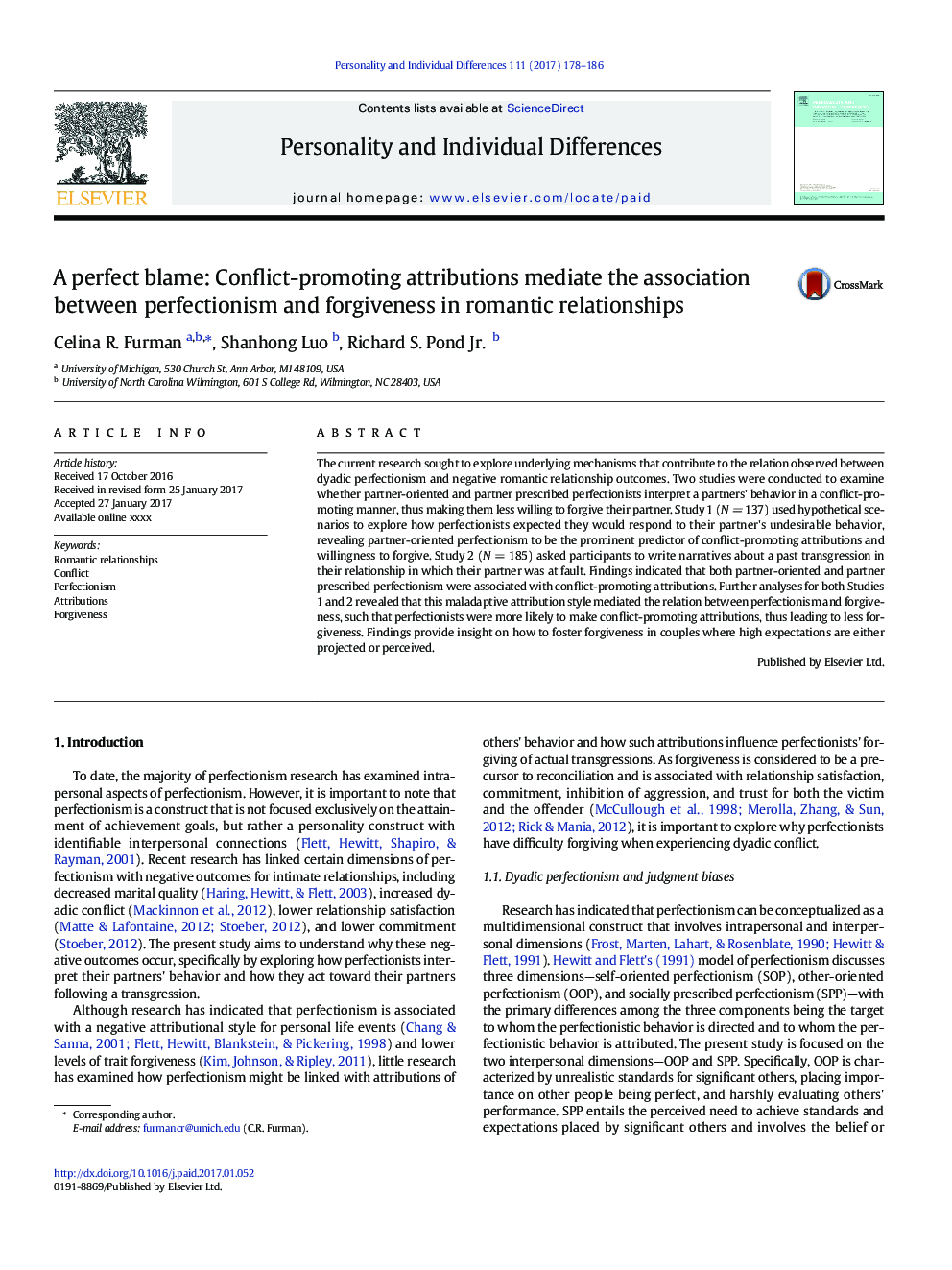| Article ID | Journal | Published Year | Pages | File Type |
|---|---|---|---|---|
| 5035937 | Personality and Individual Differences | 2017 | 9 Pages |
Abstract
The current research sought to explore underlying mechanisms that contribute to the relation observed between dyadic perfectionism and negative romantic relationship outcomes. Two studies were conducted to examine whether partner-oriented and partner prescribed perfectionists interpret a partners' behavior in a conflict-promoting manner, thus making them less willing to forgive their partner. Study 1 (NÂ =Â 137) used hypothetical scenarios to explore how perfectionists expected they would respond to their partner's undesirable behavior, revealing partner-oriented perfectionism to be the prominent predictor of conflict-promoting attributions and willingness to forgive. Study 2 (NÂ =Â 185) asked participants to write narratives about a past transgression in their relationship in which their partner was at fault. Findings indicated that both partner-oriented and partner prescribed perfectionism were associated with conflict-promoting attributions. Further analyses for both Studies 1 and 2 revealed that this maladaptive attribution style mediated the relation between perfectionism and forgiveness, such that perfectionists were more likely to make conflict-promoting attributions, thus leading to less forgiveness. Findings provide insight on how to foster forgiveness in couples where high expectations are either projected or perceived.
Related Topics
Life Sciences
Neuroscience
Behavioral Neuroscience
Authors
Celina R. Furman, Shanhong Luo, Richard S. Jr.,
